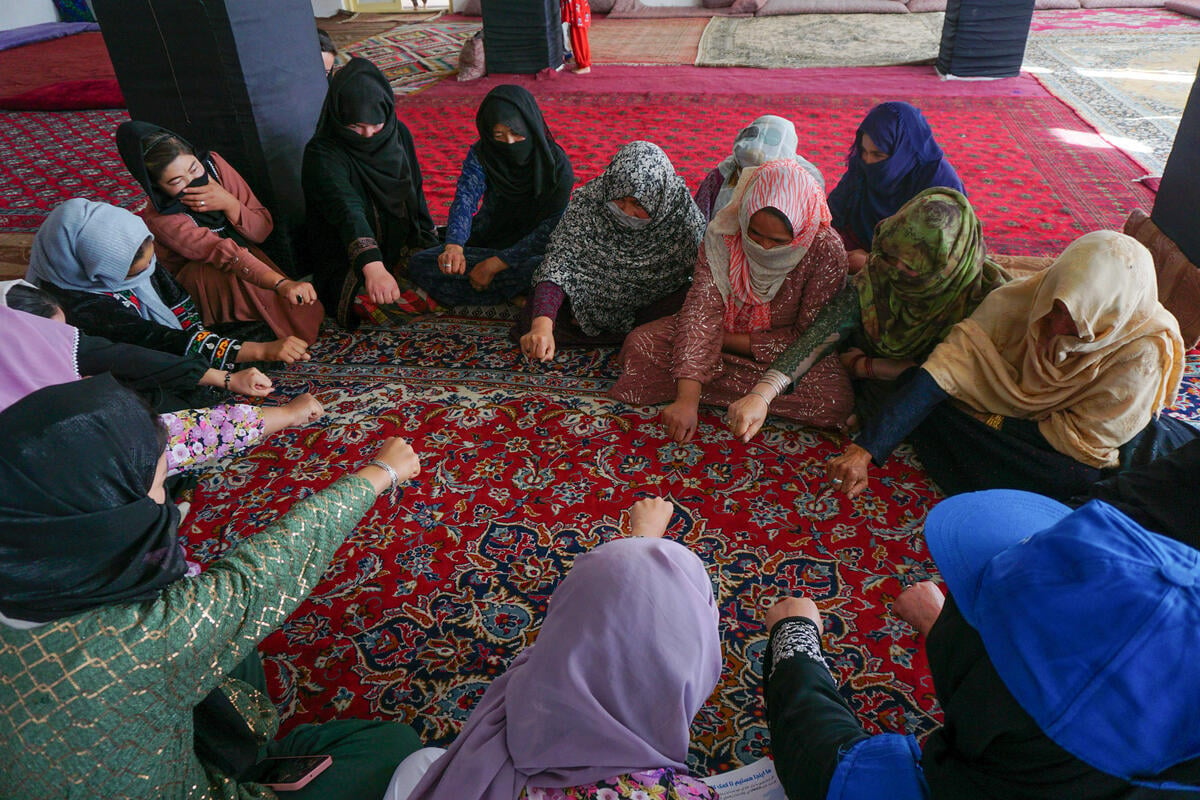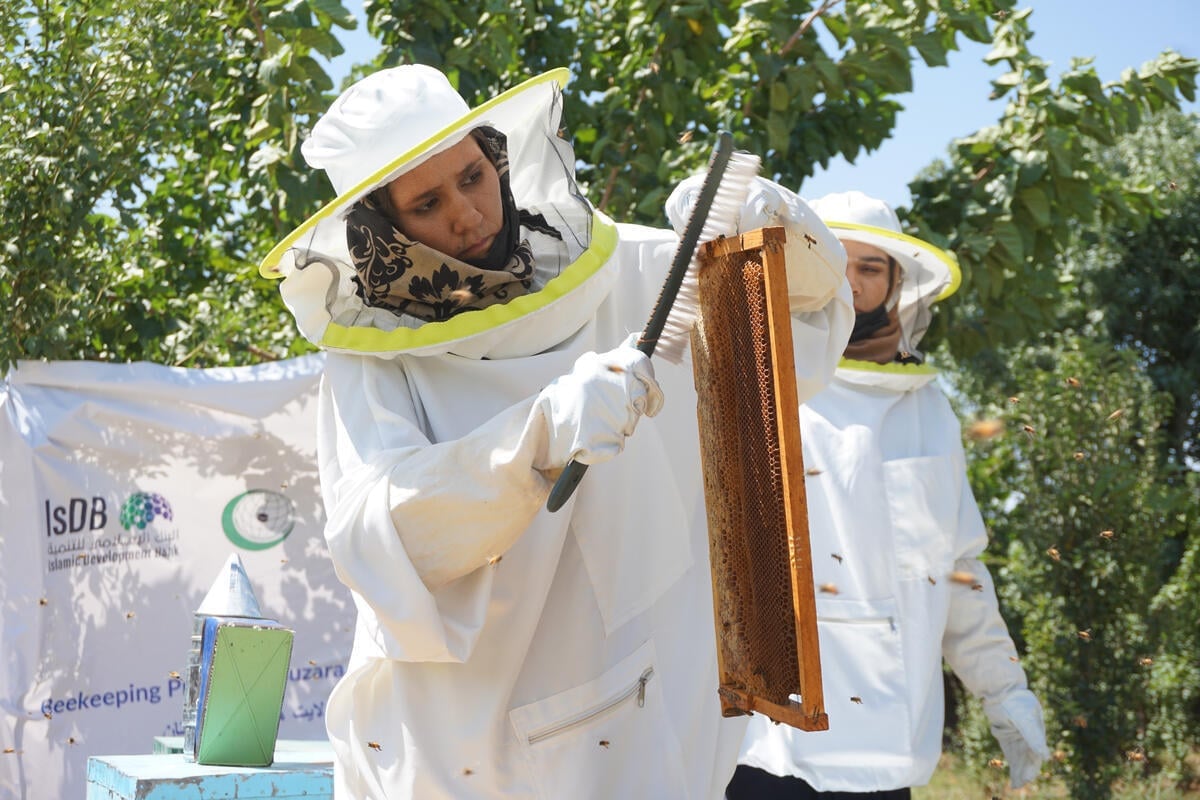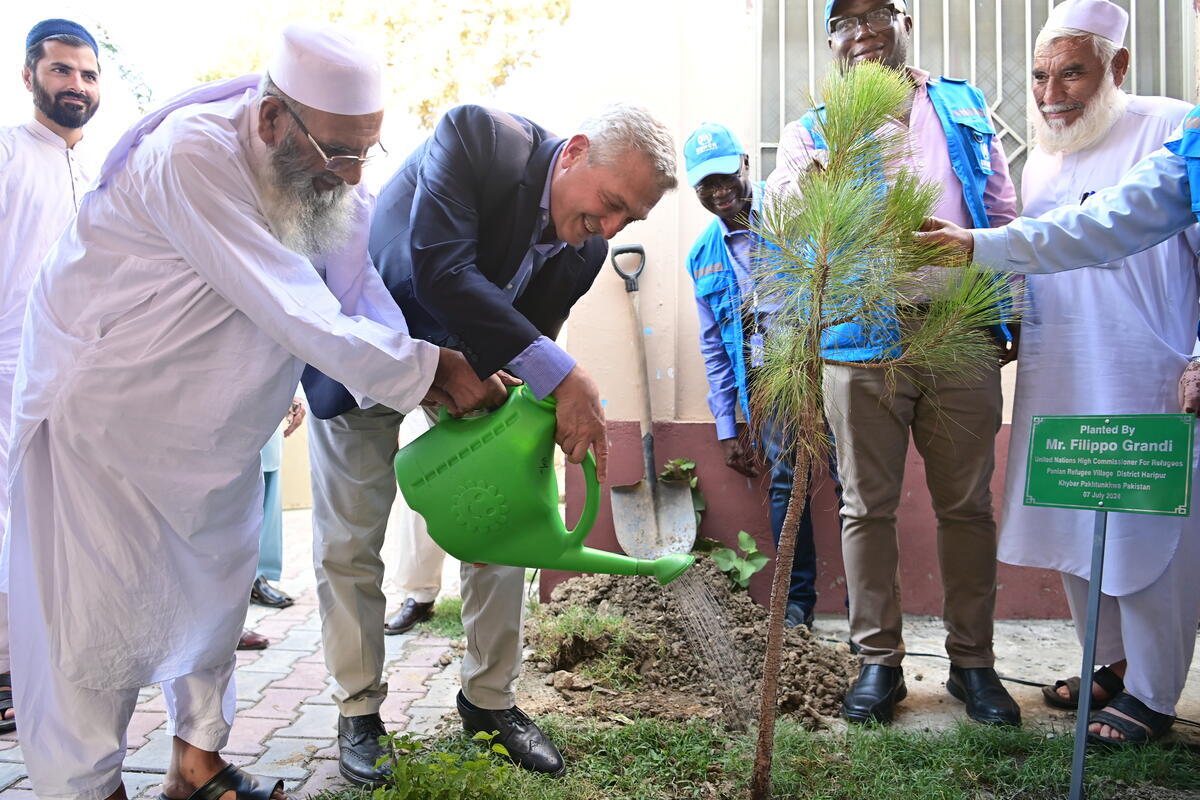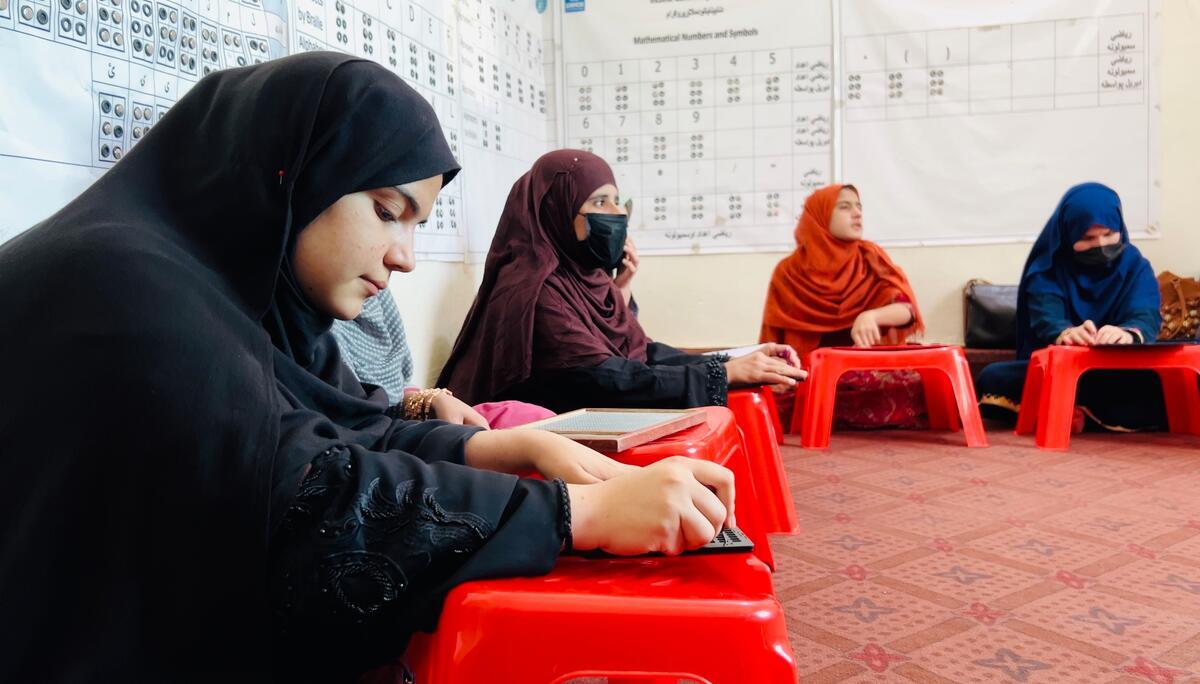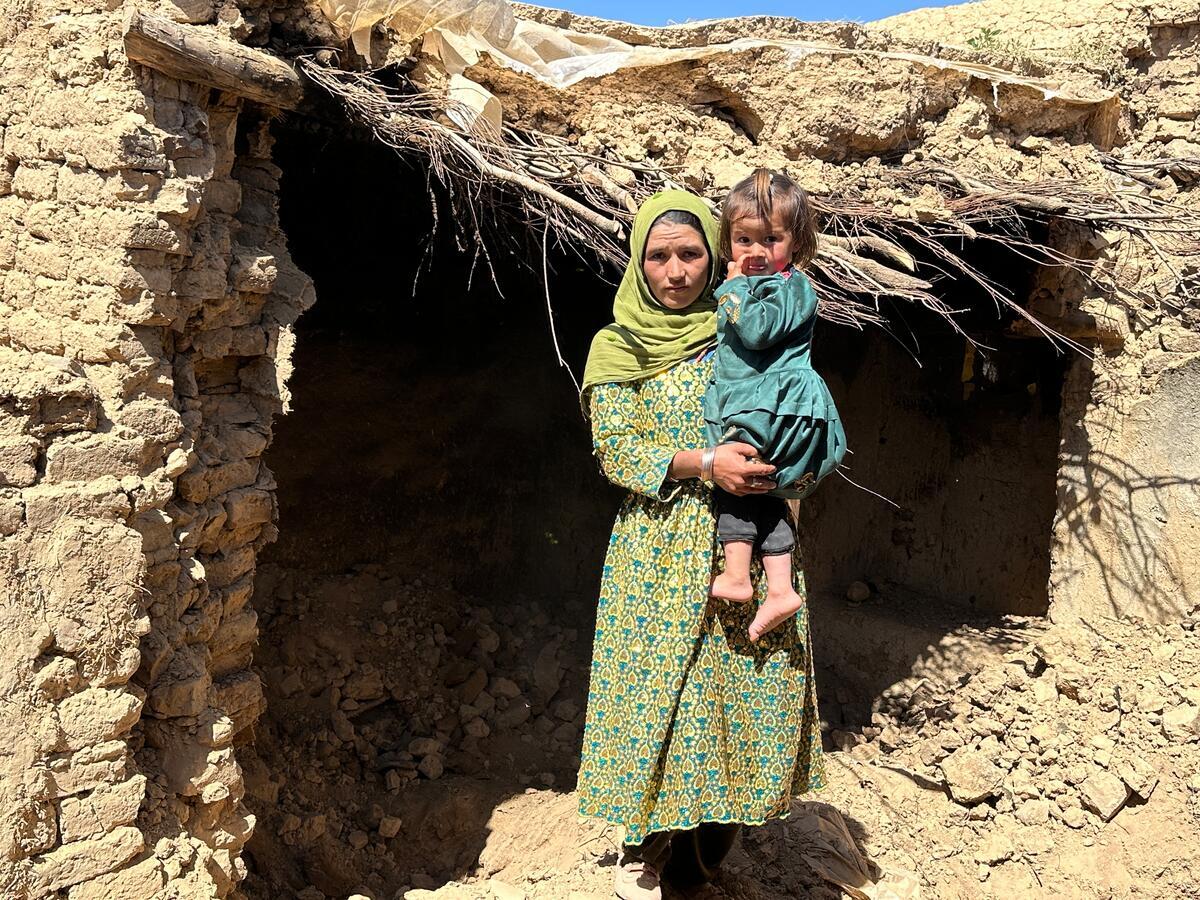Feature: Newly-weds embrace new prospects in Afghanistan
Feature: Newly-weds embrace new prospects in Afghanistan

QUETTA, Pakistan (UNHCR) - Razia, a young Afghan refugee, is about to embark on a new life. Recently married, she is returning to a homeland she has never known, where she and her husband hope to become a model couple for young Afghans.
Checking in for UNHCR's voluntary repatriation programme at the Baleli departure centre on the outskirts of Quetta, the newly-weds reflect a growing confidence in the future of Afghanistan. Her husband Hussain Ali has secured a job with the Afghan government, while Razia intends to continue her studies.
Like many young Afghan refugees, Razia was born, raised and educated in Pakistan and has never been to Afghanistan, which her parents fled in 1980.
"Everybody tells me Afghanistan is a beautiful country. I wished to visit it and now I am going to settle there," she says.
"It worries me that in many parts normality is yet to come," she concedes. "But Kabul is good, as my husband told me. He has been there since early this year and he also got his old job back."
Hussain had worked with the Kabul Chamber of Commerce and Industries before fleeing the Afghan capital in 1998 to escape conditions under the Taliban regime.
"When I went back to Afghanistan earlier this year, I approached the Ministry and they offered me a chance to resume my previous job. I can't tell you how happy I was. My job also helped me decide to marry Razia and live a happy life."
UNHCR's Shahid Malik, who works at the Baleli centre, says around 300 Afghans are still returning daily to Afghanistan through here. "Last year around this time, the return numbers were very low. But this year the refugees are still returning even in October. Nowadays, most of them are going back to Helmand and Kandahar while in previous months Ghazni province topped the charts," he says.
Afghan refugees going back from Quetta and other urban areas are registered in one of UNHCR's centres. On an agreed date they come to the departure centre with all their family members and belongings. After several checks, including an iris test to ensure they have not received assistance before, they head to the Chaman border exit and cross into Afghanistan.
So far this year, 75,000 refugees have gone back from Balochistan province to Afghanistan, around 50,000 of them through the Baleli centre. A total of 328,000 Afghan refugees have returned from Pakistan under UNHCR's voluntary repatriation programme this year.
While many Afghans are waiting for further developments in Afghanistan, those returning attribute their decision to better conditions at home. "I went back earlier this year to restore and renovate the ancestral house, see how things were and then tell other relatives that they could return," says Hussain.
While she is excited by her new life, Razia says she will miss Pakistan: "I will miss my home in Quetta and also my friends with whom I spent two decades of my life."
Before joining seven other families on the hired bus taking them to Afghanistan, Razia and Hussain say they want to be part of the regeneration of their country. Hussain pledges to support Razia through her studies in Kabul and to let her work if she wants.
"We want to be a model couple for young Afghans," says Razia, "for better understanding and also for living in peace and prosperity in our country."
By Babar Baloch
UNHCR Pakistan


